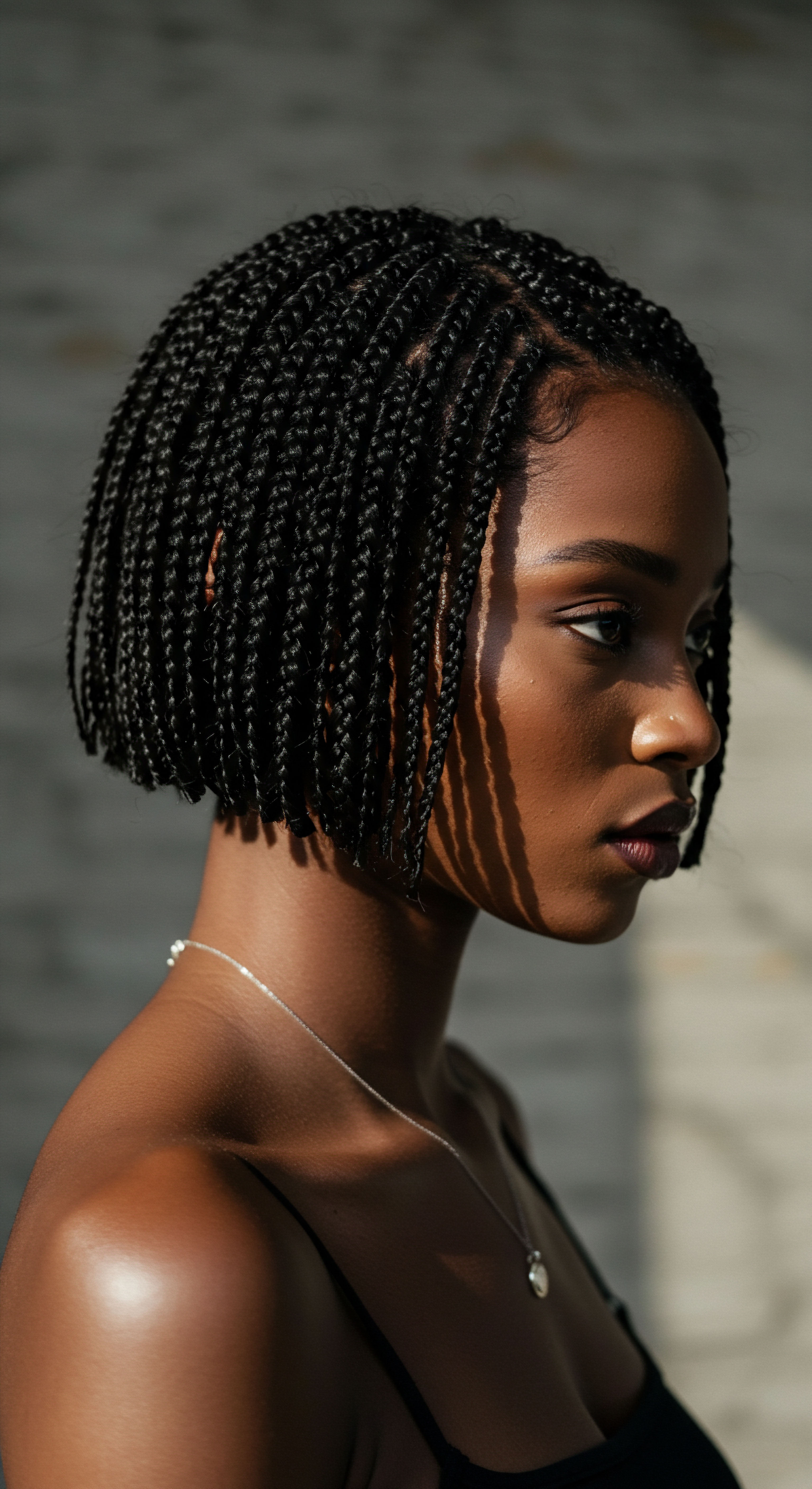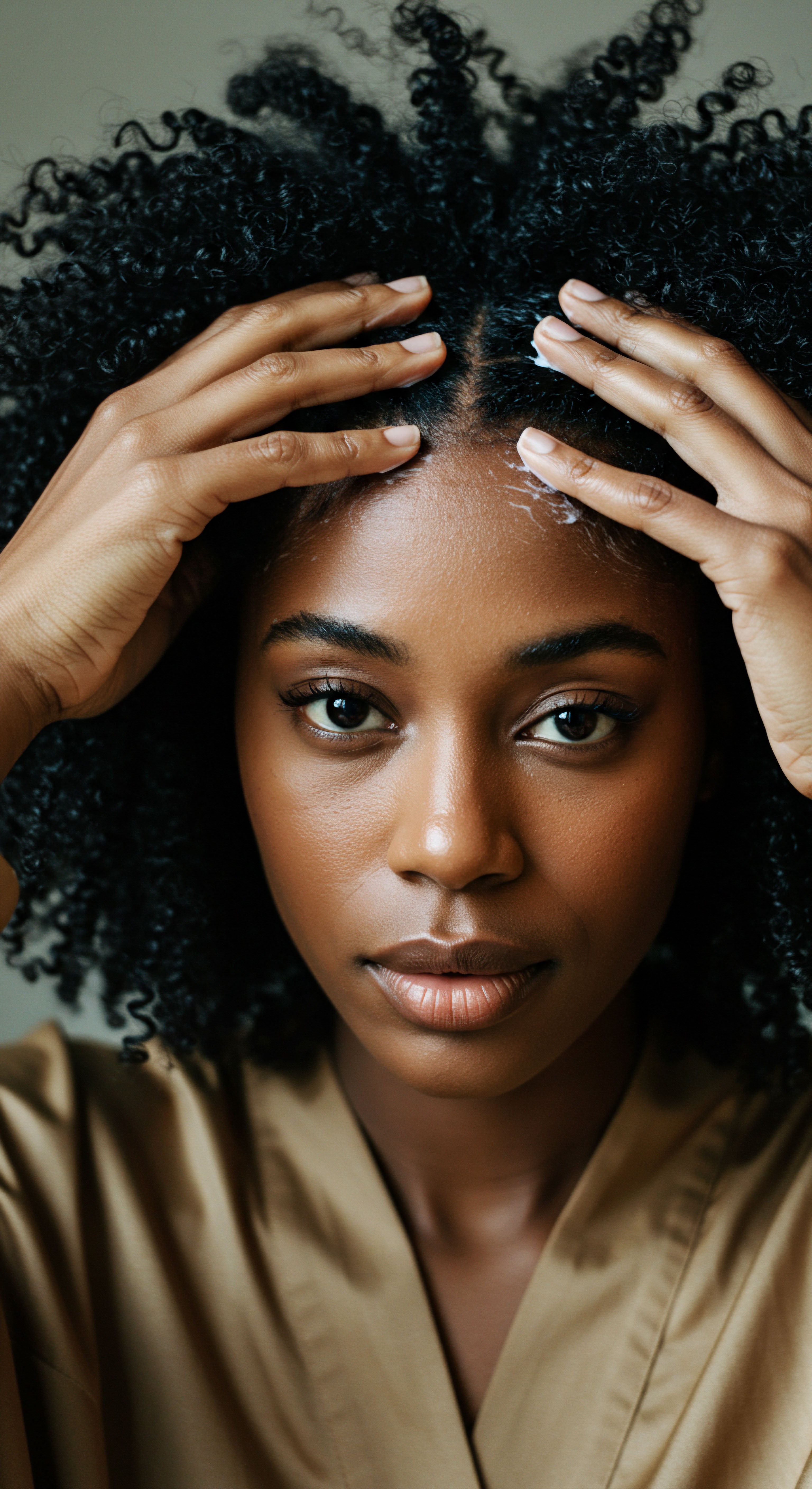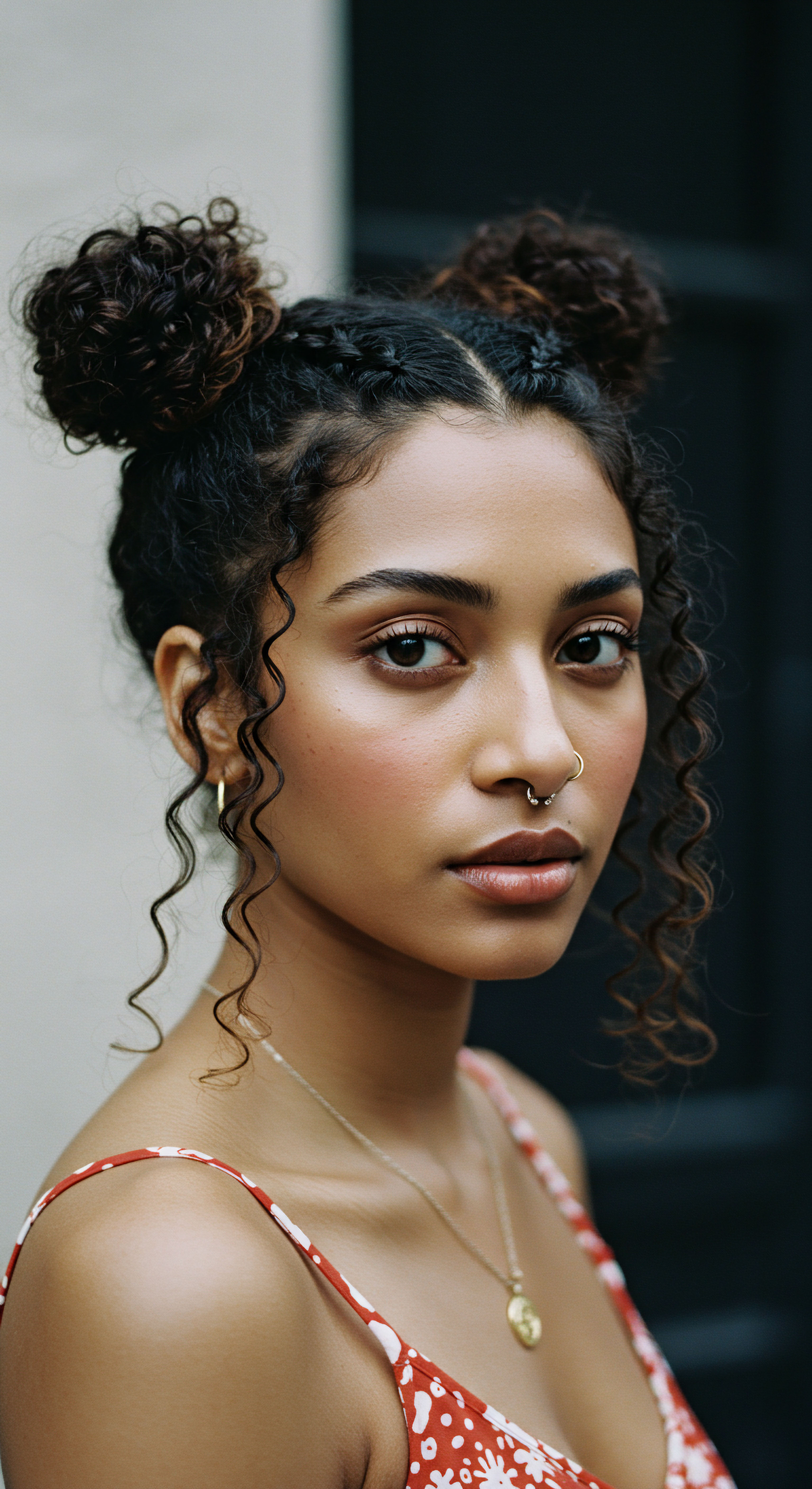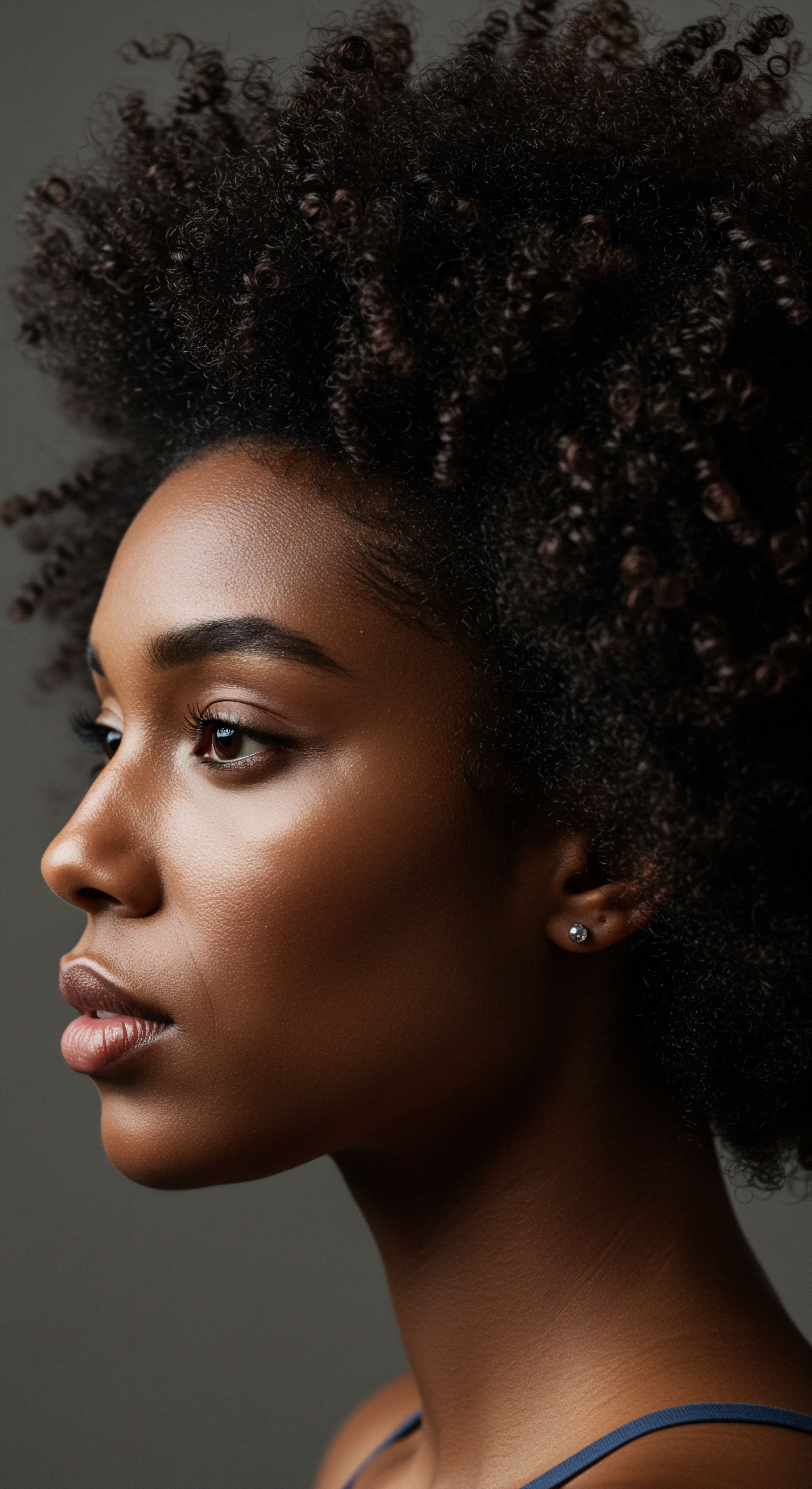
How does night rest influence hair growth?
Night rest provides a vital period for cellular repair, hormone regulation, and stress reduction, all of which are essential for robust hair growth.

What are the specific biological mechanisms connecting sleep quality and textured hair growth?
Optimal sleep directly influences textured hair growth by regulating hormones, supporting cellular repair, and synchronizing hair follicle clocks.

Does deep sleep aid textured hair growth?
Deep sleep aids textured hair growth by optimizing cellular repair, hormone balance, and circulation vital for follicle health.

How do sleep hormones influence the strength of coiled strands?
Sleep hormones, particularly melatonin and growth hormone, bolster coiled strand strength by promoting cellular repair and protein synthesis during rest.

What are the specific hormonal and cellular pathways linking sleep deprivation to hair loss in coily hair?
Sleep deprivation disrupts hormonal balance and cellular pathways, accelerating hair follicle regression and diminishing the regenerative capacity essential for coily hair health.

What are the specific biological pathways connecting nocturnal hormonal shifts to textured hair resilience?
Nocturnal hormonal shifts, particularly melatonin and growth hormone, support hair resilience by extending growth phases and promoting cellular repair within follicles.

What specific hormones during sleep support hair follicle repair?
Nighttime rest provides a symphony of hormones, including growth hormone and melatonin, which actively mend and revitalize hair follicles.

What hormones impact hair growth during restful periods?
Restful periods balance hormones like melatonin, cortisol, and growth hormone, profoundly influencing hair follicle health and growth cycles.

How do hormones affected by sleep influence long-term scalp health and hair vitality?
Hormones influenced by sleep profoundly govern long-term scalp health and hair vitality through cellular repair and growth cycle regulation.

What specific hormones connect sleep quality to the vitality of textured hair?
Quality sleep supports balanced hormones like melatonin and growth hormone, crucial for robust hair follicle activity and vibrant textured hair.

What specific sleep stages affect textured hair growth cycles?
Deep sleep and REM stages support textured hair growth by regulating hormones and optimizing follicle repair and nutrient delivery.
